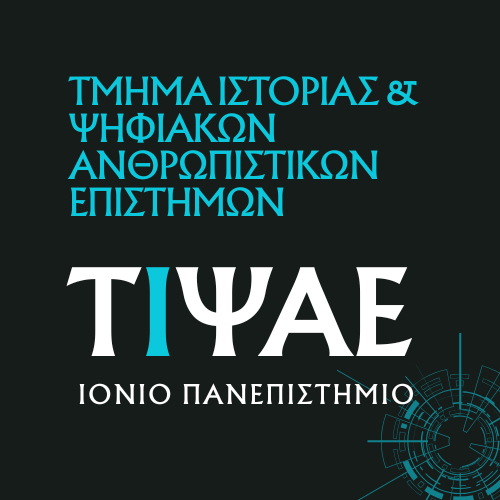LATIN LANGUAGE AND LITERATURE Ι
Teaching Staff: Evangelou Gabriel
Course Code: ΛΑΦ101
Course Type: Compulsory
Course Level: Undergraduate
Course Language: Greek
Delivery method: Face to face
Semester: 2nd
ECTS: 5
Curricula: Curriculum in History up to 2024-25, Curriculum in History and Digital Humanities from 2025
Introduction to the Latin language and Latin literature through the reading and analysis of short adapted Latin texts and the formation of sentences from Modern Greek to Latin.
Upon successful completion of the course, the student will:
- Have gained a basic understanding of the Latin language (in terms of vocabulary, grammar, and syntax) and Latin literature from Livius Andronicus to Medieval Latin.
- Be familiar with key figures in Latin prose and poetry and their contribution to literature, as well as the strong ties between Greek and Latin literature.
- Be able to translate simple texts from Latin to Modern Greek and from Modern Greek to Latin with the assistance of a reliable dictionary.
- Know the sources that can be utilized for approaching and preparing a Latin text.
- Be capable of recognizing basic grammatical and syntactical phenomena in the Latin language in both familiar and unfamiliar texts.
- Familiarization with the use of multiple tools for linguistic analysis and comprehension of unknown Latin texts, such as dictionaries, physical books on grammar and syntax as well as additional digital sources.
- Close reading of adapted passages from literary and non-literary texts of Latin literature.
- Explanation of grammatical and syntactical phenomena in the passages under examination and provision of additional examples to clarify each phenomenon.
- Overview of the salient historical milestones in Latin language and Latin literature
Kenney, E. J. & Clausen, W. V. (2015), Ιστορία της Λατινικής Λογοτεχνίας, Μετάφραση Θ. Πίκουλα, Α. Σιδέρη-Τόλια, Αθήνα. 870.109 ΚΕΝ
Graf, Fritz (2015), Εισαγωγή στην αρχαιογνωσία, Τόμος Β’ Ρώμη, Μετάφραση Δ. Νικήτας, Αθήνα.
Rose, H. J. (2005), Ιστορία της λατινικής λογοτεχνίας (Τόμος Α’), Μετάφραση Κ. Γρόλλιος, Αθήνα.
Γιαγκόπουλος, Α. (1994), Συντακτικό της λατινικής γλώσσας, Θεσσαλονίκη.
Δημήτριος Ζ. Νικήτας, Δ. Ζ. και Τρομάρας Λ. Μ. (2019), Σύγχρονο λατινοελληνικό λεξικό: από τις απαρχές της λατινικής γραμματείας μέχρι τον 9ο μ.Χ. αιώνα, Θεσσαλονίκη.
Κακριδής, Θ. Α. (2009), Γραμματική της λατινικής γλώσσης, Αθήνα. 475 ΚΑΚ
Καρακάσης, Ε. Παππάς, Β. και Καλλέργη, Α. (2022), Η λατινική γλώσσα: γραμματική - σύνταξη - αντίστροφη σύνθεση του λατινικού λόγου, Ιωάννινα. 475 ΚΑΡ
Μαρκαντωνάτος, Γ. (1999), Βασικό λεξικό της λατινικής: με διάγραμμα ιστορίας της λατινικής γλώσσας και χρήσιμους πίνακες, Αθήνα. Π 473 ΜΑΡ
Μιχαλόπουλος, Α. Η. και Μιχαλόπουλος Χ. Ν. (2016), Lego, legis, legit: Βασικό Λεξιλόγιο της Λατινικής, Αθήνα.
Παπαγγελής, Θ. (2005), Η Ρώμη και ο κόσμος της, Θεσσαλονίκη. 937 ΠΑΠ
https://www.greek-language.gr/digitalResources/ancient_greek/history/rome/contents.html
Τζάρτζανος, Α. Α. (1983), Λατινική γραμματική, Αθήνα. ΒΑΝ 475 ΤΖΑ
Φυντίκογλου, Β. Α. και Τσίτσιου-Χελιδόνη, Χ. (2015), Lingua Latina, Αθήνα. https://repository.kallipos.gr/handle/11419/2409
Bortolussi, B. (2014), Λατινική γραμματική, Μετάφραση Δ. Γ. Μπενέτος, Επιμέλεια Α. Η. Μιχαλόπουλος, Σ. Γ. Παπαϊωάννου, Β. Α. Φυντίκογλου, Αθήνα.
Maltby, Ρ. & Belcher, Κ. (2014), Τα λατινικά: μαθαίνοντας την γλώσσα από τις πηγές, Αθήνα.
von Albrecht, M. (2013), Ιστορία της Ρωμαϊκής Λογοτεχνίας: από τον Ανδρόνικο ως τον Βοήθιο και η σημασία της για τα νεότερα χρόνια, μτφ. επιμ. Δ. Νικήτας, φιλ. επιμ. Λ Περράκη, Τ. Μαρκομιχελάκη, Ηράκλειο. 870.109 ALB
Wheelock, F. M. (2020), Τα λατινικά του Wheelock, Αναθεώρηση από τον R. A. LaFleur, Mετάφραση/επιμέλεια Α. Ν. Μιχαλόπουλος, Σ. Παπαϊωάννου, Αθήνα. ΒΑΝ 478.2421 WHE
Each class will take place in the form of both lectures and dialogues using the Herbartian approach and Socratic/maieutic methods. One week before each lecture, in addition to the texts under examination, tables with the basic vocabulary of the texts will be provided, allowing students to have their first contact with the texts and thus be better prepared for their interpretive and linguistic analysis.
Starting from the second lesson and onwards, each lecture will commence with a recap in the form of questions to the students on the key points discussed in the previous lecture to reinforce the material covered.
Throughout the course, extensive use of PowerPoint presentations with the instructor’s notes and audiovisual material will be made for the discussion of images and for displaying maps and videos related to the examined text. To achieve a better understanding of the vocabulary of the texts studied in the classroom, online sources will be utilized, which provide information regarding the translation and declension of terms within a sentence.
Online sources:
Online access to Latin texts: https://www.thelatinlibrary.com/
Online access to Latin texts (with translations of ancient works into English): http://www.perseus.tufts.edu/hopper/
Online dictionaries (with translations of Latin words into English): •http://www.perseus.tufts.edu/hopper/morph?l=amo&la=la#lexicon •https://en.wiktionary.org/wiki/amo#Latin
Abbreviations of scientific journals as well as of ancient authors and their works: Hornblower, S. & Spawforth, A. (2003)4, Oxford Classical Dictionary, 4th Edition, Oxford. https://oxfordre.com/classics/page/3993
Additionally, email exchange will be used to communicate with students outside of the instructor’s office hours.
Written or oral examination.
Optionally, students will have the opportunity to either a) present a paper on the contribution of a Roman author to Latin literature or b) translate and perform a grammatical-syntactic analysis of an unknown Latin text. The optional assignment will be added to the final grade of the course.
Back



